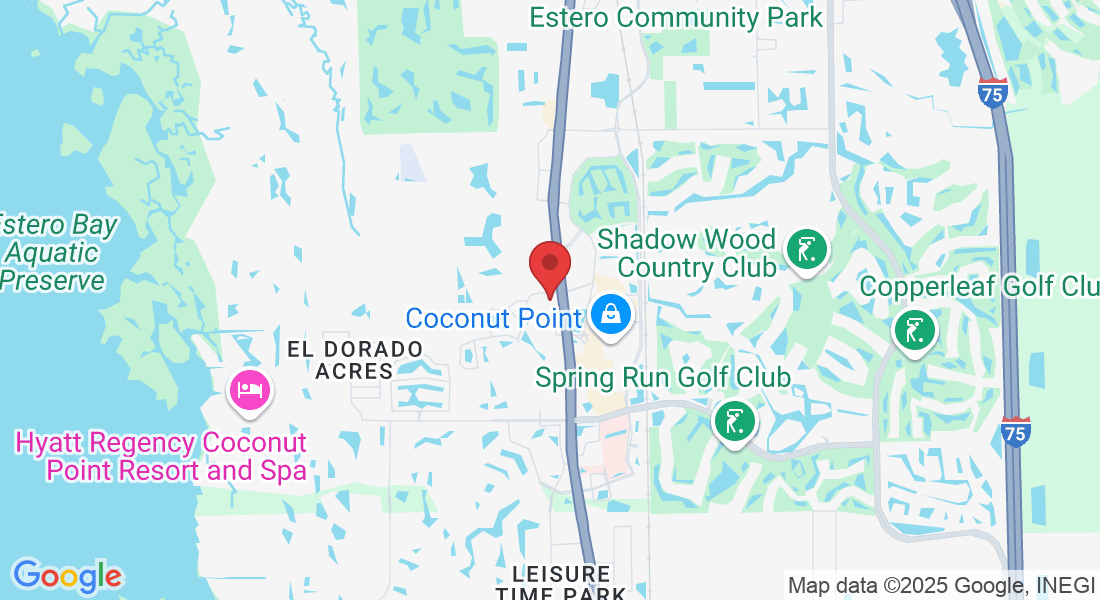Call Us: (239) 221-6120
We are NOT currently hiring. This site is for families seeking memory care services. For employment inquiries, visit our Indeed page.
Redefining Memory Care In Estero Florida
Choosing the right memory care community for a loved one is a deeply personal decision. At Gulf Coast Memory Care, conveniently located next to Coconut Point Shopping Center in Estero, Florida, we've created a haven of tranquility where residents can experience a luxurious and comfortable lifestyle. Let us help you make this important decision with confidence.
"Choose us with peace of mind; if within 90 days your heart pulls you elsewhere, we'll ensure a smooth transition and give your community fee back to help secure another place."
Your family's freedom to thrive is our top priority.

Award Winning Leadership

Understanding The Benefits Of Memory Care
Hear From Jen
We believe that exceptional care begins with open, honest, and ongoing communication. Families have direct access to our leadership and caregivers, including personal cell numbers, because staying informed should never be a struggle.
Every resident also receives a personalized care plan tailored to their needs, so families always stay connected.
Is It The Right Time For Memory Care?
Understanding that memory care is not a one-size-fits-all solution, we prioritize personalized care plans that adapt to each individual’s progression.
Learn more about senior care and get personalized results in this quick 5 minute survey.
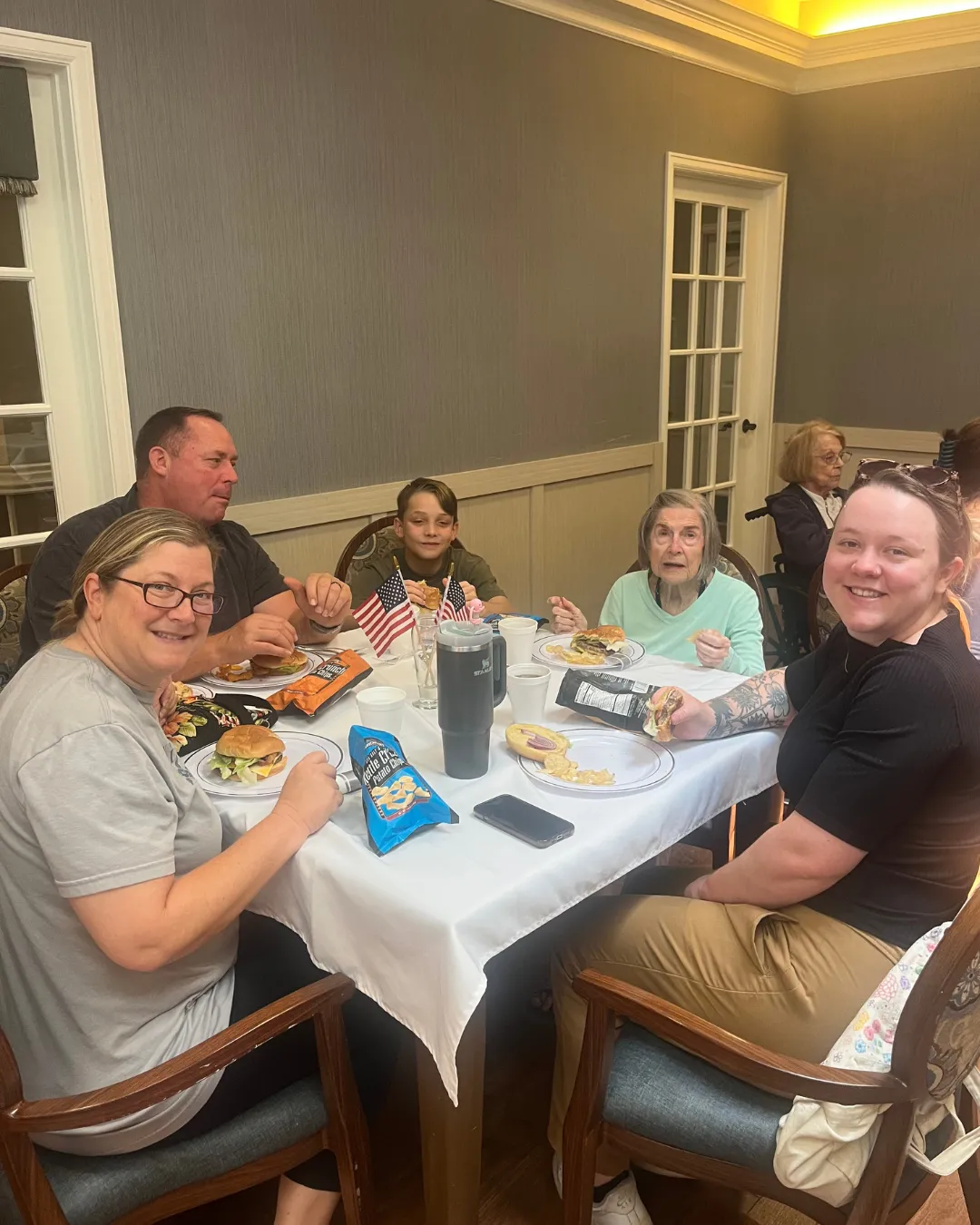
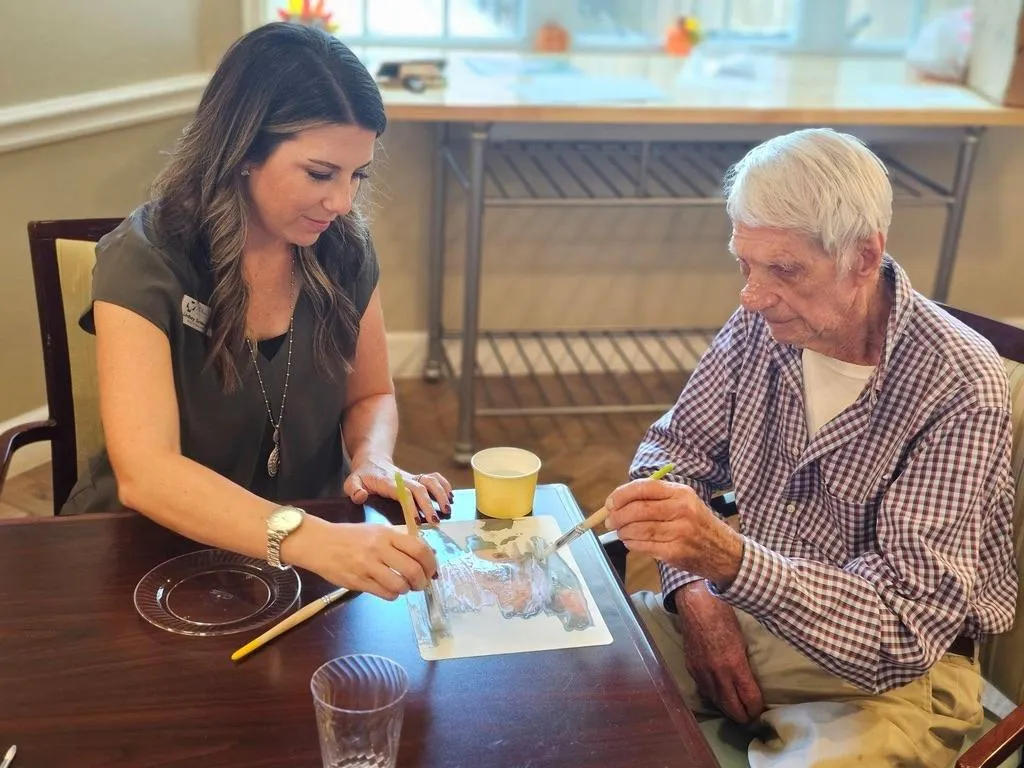
A Community For Alzheimer’s & Dementia Care
Families seeking Alzheimer’s and dementia support in Estero, Florida, can rely on our compassionate team for a community that truly cares.
Through ongoing training in the latest memory care practices and a commitment to safety, Gulf Coast Memory Care offers peace of mind for families and the highest standard of care for residents.
Love From Our Families


My mom moved into her new home a few weeks ago. I was able to visit with her this week while being in Florida and my gosh, I know she is right where she needs to be. Huge shoutout to Jerry, Diana, Paula, Kathy and Apryl. You are real life angels. The energy you bring is above and beyond. To see how you interact with not only my mom, but all the residents, it truly warms my heart. While it is heartbreaking to see my mom battle Alzheimer's, I know she is in the perfect place. She is safe and receiving the care she needs. <3 The place is clean, accommodating and most importantly feels like home. I love that there is a schedule and many activities for the residents to participate in. My mom has loved the painting and coloring
- Bill & Bonny B

Shelly Richardson

Upon entering this beautiful community, I was deeply impressed by the exceptional level of care and compassion demonstrated by all the caregivers. Every member of the team, from maintenance staff to the executive director, significantly contributes to the residents' quality of life. The interior courtyards offer a safe and beautiful outdoor escape for the residents, while the dining area is both elegant and spacious. GCMC stands out as one of the premier memory care centers I have ever visited.
- Bill & Bonny B


Exceptional dedication. Genuine care 24/7, everyone is doing a great job, from Management to the care team. Jerry and Diana are conducting the business, but you can see them walking the hallway and chatting with the residents, literally knowing everyone. There is an engine who works behind the scenes to have the day and night activity running smoothly. Family feeling, warmth, and genuine care, overall, 5 stars. Residents are never alone, there is always a pair of eyes to watch and hands ready to help as needed, but all is done in a certain way, so our loved ones don’t feel any loss of their independence. Beautifully done. The activities are not just lines on paper, everyone is involved. Food is first class.
- Bill & Bonny B
Our Senior Care Amenities
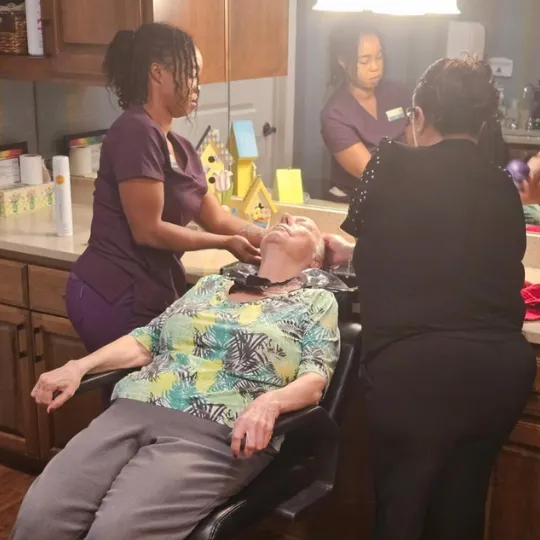
One-site beauty salon and barbershop
Personalized, chef-prepared meals
Customized activity programs
Craft and hobby room
Family living room
Full Library
Abundant natural light to minimize sundowning
Located next to Coconut Point Shopping Center
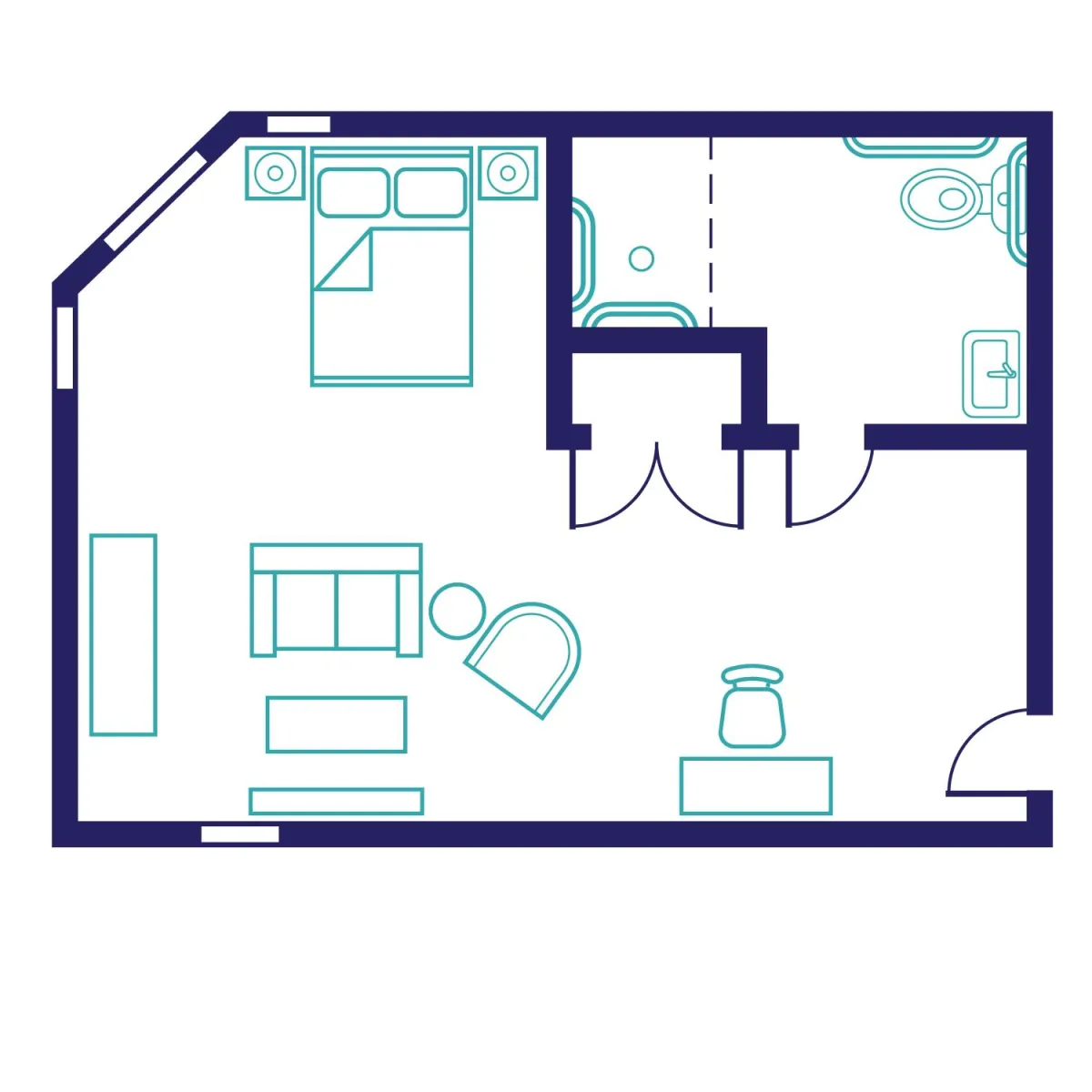
The Edison Suite
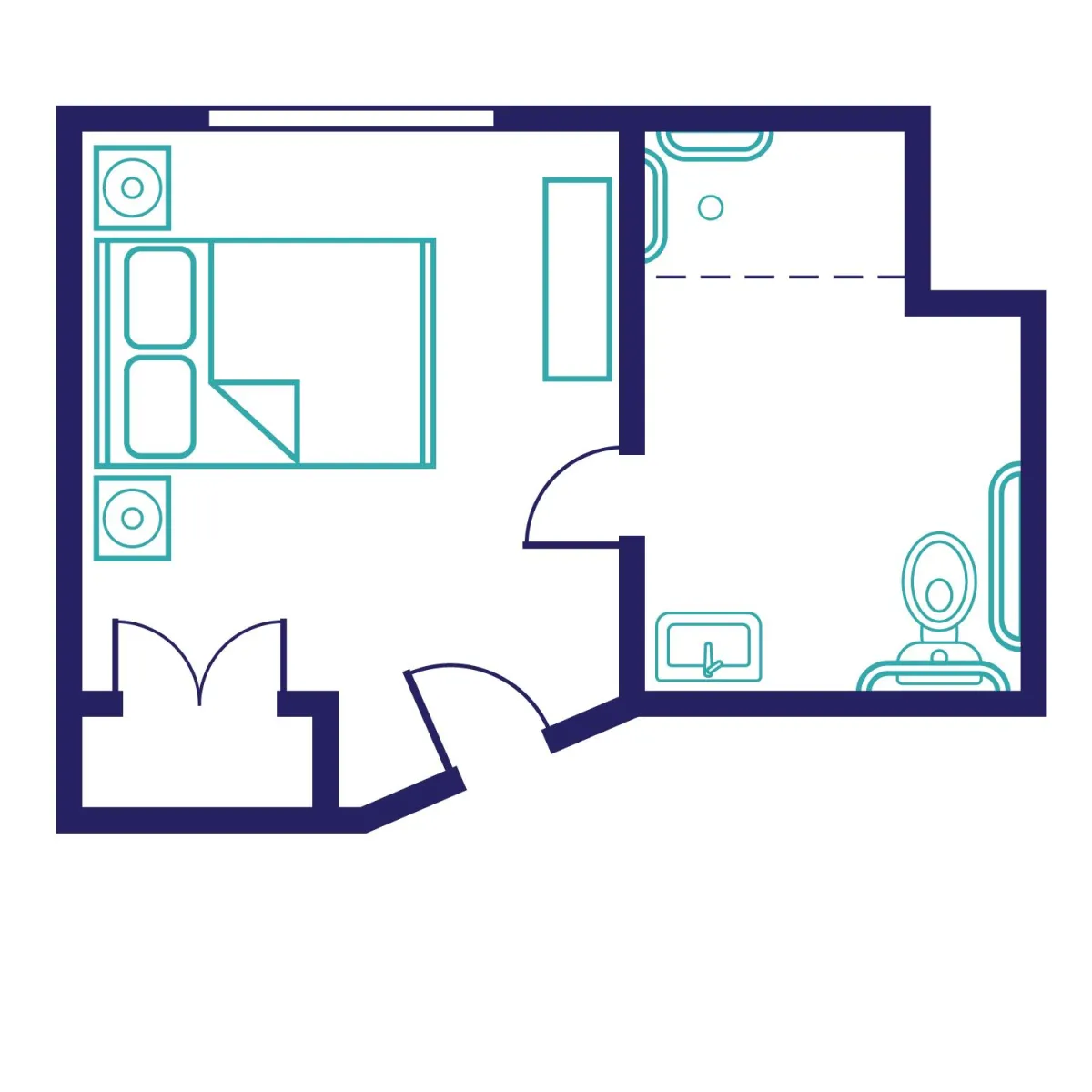
The Magnolia Suite
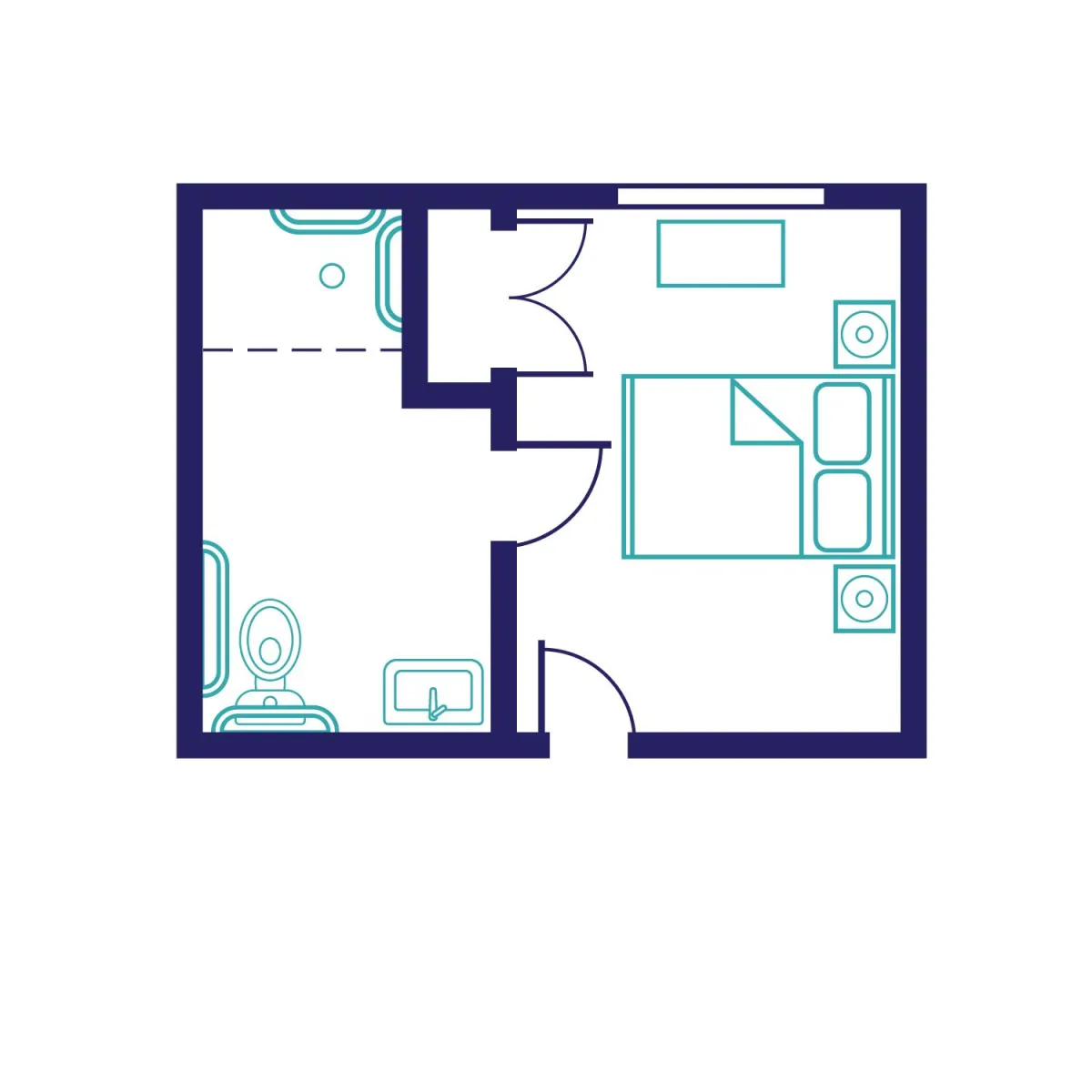
The Sugarberry Suite
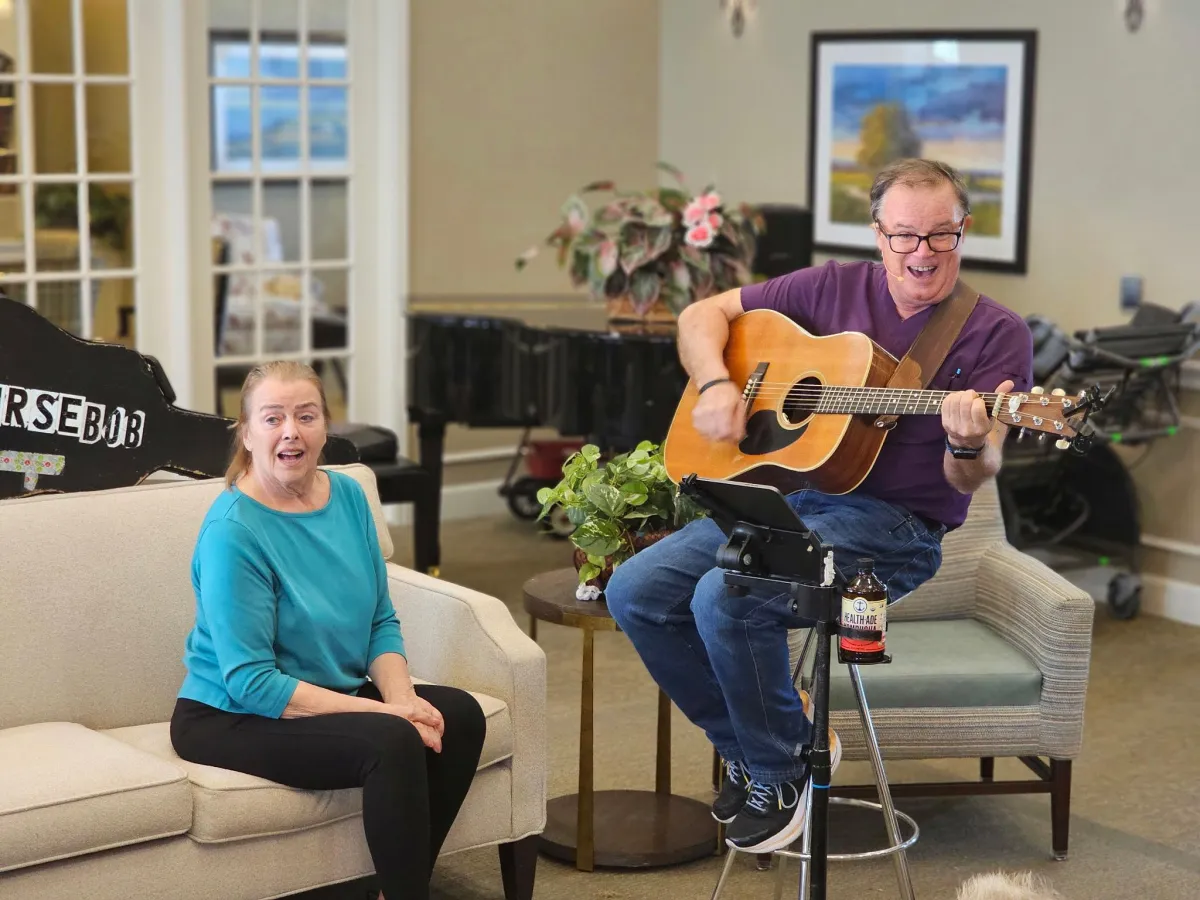
Engaging Residents With Meaningful Social Connections
We also prioritize activities that nurture both physical and mental wellness, from gentle exercise routines to social events that create a sense of community among residents. These carefully crafted programs are designed to boost mood, reduce anxiety, and encourage meaningful interactions, all of which contribute to a fulfilling lifestyle for those facing memory challenges.
Our Commitment To You
Our commitment extends to providing families with guidance and resources to understand memory loss and navigate the journey with confidence. Whether it’s through educational workshops or one-on-one consultations, we’re here to support families every step of the way, ensuring they feel connected and informed about their loved one’s care journey.
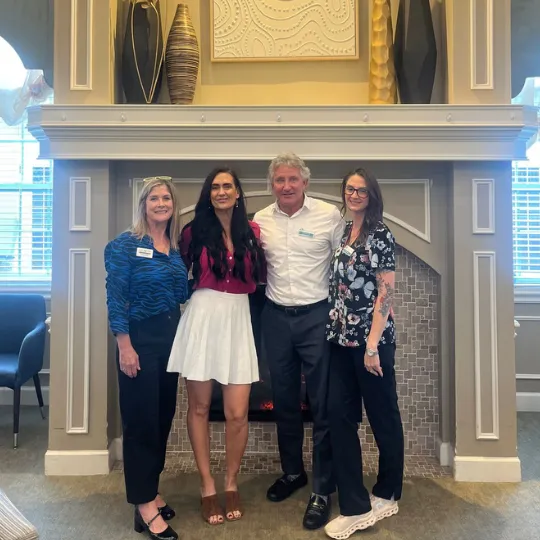

Are You Ready To Get Settled In?
Embark on a transformative experience at Gulf Coast Memory Care in Estero, Florida. We're not just a memory care community; we're a sanctuary where the mind, body, and spirit are nurtured. If you're seeking a place where compassion, care, and a deep respect for the human soul are paramount, you've found the right haven.
Check Out Our Blog

Your Guide to Understanding the Early Warning Signs of Dementia
Dementia is a complex condition that affects millions of people worldwide. It's a term that encompasses a range of symptoms associated with a decline in memory or other thinking skills.
This decline is severe enough to reduce a person's ability to perform everyday activities. Alzheimer's disease is the most common type of dementia, but there are many other forms.
Understanding the early warning signs of dementia is crucial. It can help in early detection, which is key to managing the condition effectively.
This guide aims to provide you with a comprehensive overview of the early signs of dementia. We’ll delve into the subtle changes that may indicate early signs of dementia so that you will have a better understanding of dementia symptoms. You'll also learn how to support a loved one showing signs of this condition.
Remember, knowledge is power. The more you understand about dementia, the better equipped you'll be to provide the necessary care and support.
What is Dementia?
Dementia is a collective term for cognitive decline severe enough to interfere with daily life. It affects memory, thinking, and social abilities, impairing a person's independence.
It's important to differentiate normal age-related memory changes from dementia. While occasional forgetfulness is common with age, dementia involves more severe impairments that disrupt life.
Several types of dementia exist, each with unique features. Alzheimer's disease is the most common and is characterized by memory loss and confusion. Other forms include vascular dementia, caused by impaired blood flow to the brain, and Lewy body dementia, which involves progressive decline with fluctuating cognition.
Early recognition of these types can guide effective care and support. Understanding the specific characteristics helps tailor a care plan to the individual's needs, promoting a better quality of life. Recognizing dementia's impact requires awareness and compassion, guiding families through the challenges with informed support.
Recognizing the Early Signs of Dementia
Understanding the early signs of dementia can be crucial for timely intervention. These early signs often begin subtly but increase over time.
Memory loss, especially disruptive to daily life, is a classic early sign. This includes forgetting recently learned information or important dates.
Another early indicator is difficulty with planning or problem-solving. Individuals may struggle with following familiar recipes or managing monthly bills.
Completing everyday tasks may become challenging. They might find it hard to complete tasks they have done countless times before, such as using household appliances.
Confusion with time or place can also be an early sign. People with dementia may lose track of dates, seasons, or time.
Trouble understanding visual images and spatial relationships can occur. They may have difficulty judging distances, leading to problems with driving or navigating spaces.
By recognizing these early signs, you can seek necessary evaluation. Early detection allows for a better approach to managing and supporting loved ones with dementia.
The Importance of Early Detection
Recognizing dementia symptoms early can make a significant difference in the management of the condition. Early recognition allows for timely interventions, potentially slowing the progression of the disease. It also provides families with the opportunity to plan for the future with the necessary resources and support in place.
Early detection plays a crucial role in managing dementia by enabling access to treatments and therapies aimed at maintaining cognitive function. By identifying early dementia signs, healthcare providers can implement strategies that focus on enhancing quality of life. This proactive approach offers individuals and their families hope and a sense of control, empowering them to navigate the journey ahead with greater confidence and preparedness.
Communication and Behavioral Changes to Watch For
Dementia can manifest in various communication challenges, impacting an individual’s ability to express themselves. People might struggle with finding the right words or following a conversation, which could be an early warning sign of dementia.
Another common issue is misplacing items and being unable to retrace steps to find them. This isn't simply losing keys occasionally. Instead, it's a frequent loss of items and growing frustration when trying to locate them.
One might also notice decreased or poor judgment, particularly in financial decisions. A person may make uncharacteristic purchases or overlook essential bills. Such changes might hint at cognitive decline and warrant a closer look.
Social withdrawal is another indicator to be mindful of. A person might shy away from work or hobbies they previously enjoyed. These shifts can reflect changes in mood or confidence due to the developing dementia symptoms.
When to Seek Medical Advice
Addressing concerns about dementia symptoms can feel challenging, that’s why it's crucial to approach the topic with empathy and understanding. Encourage open discussions about changes in memory or behavior. This can help alleviate any fear or denial the individual might feel.
Once the decision is made to seek medical advice, understanding the diagnostic process is essential. The evaluation typically involves a review of medical history, physical exams, and cognitive testing. It's important to prepare for the visit by documenting observed symptoms. This allows healthcare professionals to make an accurate diagnosis and develop an appropriate care plan.
Supporting Your Loved One: Practical Tips and Resources
When supporting a loved one with early dementia signs, communication is key. Use simple language and maintain eye contact to ensure understanding. Listening patiently can also help your loved one feel valued and heard.
Creating a supportive environment is crucial for their well-being. Ensure their surroundings are safe and familiar by minimizing clutter and implementing routines. Predictability can provide comfort and reduce confusion.
Legal and financial planning should be addressed early. Discussing these issues can be overwhelming, but preparing for future needs is critical. Legal professionals can offer guidance on creating wills and power of attorney documents.
Access to support resources can ease the caregiving journey. Seek out local or online support groups to connect with others facing similar challenges. These networks provide emotional support, information, and practical advice.
Conclusion: Empowering Families Through Knowledge and Support
Understanding dementia's early signs can be overwhelming. Yet, knowledge is a powerful ally, equipping families to navigate this complex journey. A foundation of patience and empathy will greatly aid in providing effective support and care.
Staying informed is vital for proactive management and advocacy. Reach out to support networks or our team for advice and encouragement. By seeking guidance and embracing available resources, families can better support their loved ones and ensure they are not facing this journey alone.

Your Guide to Understanding the Early Warning Signs of Dementia
Dementia is a complex condition that affects millions of people worldwide. It's a term that encompasses a range of symptoms associated with a decline in memory or other thinking skills.
This decline is severe enough to reduce a person's ability to perform everyday activities. Alzheimer's disease is the most common type of dementia, but there are many other forms.
Understanding the early warning signs of dementia is crucial. It can help in early detection, which is key to managing the condition effectively.
This guide aims to provide you with a comprehensive overview of the early signs of dementia. We’ll delve into the subtle changes that may indicate early signs of dementia so that you will have a better understanding of dementia symptoms. You'll also learn how to support a loved one showing signs of this condition.
Remember, knowledge is power. The more you understand about dementia, the better equipped you'll be to provide the necessary care and support.
What is Dementia?
Dementia is a collective term for cognitive decline severe enough to interfere with daily life. It affects memory, thinking, and social abilities, impairing a person's independence.
It's important to differentiate normal age-related memory changes from dementia. While occasional forgetfulness is common with age, dementia involves more severe impairments that disrupt life.
Several types of dementia exist, each with unique features. Alzheimer's disease is the most common and is characterized by memory loss and confusion. Other forms include vascular dementia, caused by impaired blood flow to the brain, and Lewy body dementia, which involves progressive decline with fluctuating cognition.
Early recognition of these types can guide effective care and support. Understanding the specific characteristics helps tailor a care plan to the individual's needs, promoting a better quality of life. Recognizing dementia's impact requires awareness and compassion, guiding families through the challenges with informed support.
Recognizing the Early Signs of Dementia
Understanding the early signs of dementia can be crucial for timely intervention. These early signs often begin subtly but increase over time.
Memory loss, especially disruptive to daily life, is a classic early sign. This includes forgetting recently learned information or important dates.
Another early indicator is difficulty with planning or problem-solving. Individuals may struggle with following familiar recipes or managing monthly bills.
Completing everyday tasks may become challenging. They might find it hard to complete tasks they have done countless times before, such as using household appliances.
Confusion with time or place can also be an early sign. People with dementia may lose track of dates, seasons, or time.
Trouble understanding visual images and spatial relationships can occur. They may have difficulty judging distances, leading to problems with driving or navigating spaces.
By recognizing these early signs, you can seek necessary evaluation. Early detection allows for a better approach to managing and supporting loved ones with dementia.
The Importance of Early Detection
Recognizing dementia symptoms early can make a significant difference in the management of the condition. Early recognition allows for timely interventions, potentially slowing the progression of the disease. It also provides families with the opportunity to plan for the future with the necessary resources and support in place.
Early detection plays a crucial role in managing dementia by enabling access to treatments and therapies aimed at maintaining cognitive function. By identifying early dementia signs, healthcare providers can implement strategies that focus on enhancing quality of life. This proactive approach offers individuals and their families hope and a sense of control, empowering them to navigate the journey ahead with greater confidence and preparedness.
Communication and Behavioral Changes to Watch For
Dementia can manifest in various communication challenges, impacting an individual’s ability to express themselves. People might struggle with finding the right words or following a conversation, which could be an early warning sign of dementia.
Another common issue is misplacing items and being unable to retrace steps to find them. This isn't simply losing keys occasionally. Instead, it's a frequent loss of items and growing frustration when trying to locate them.
One might also notice decreased or poor judgment, particularly in financial decisions. A person may make uncharacteristic purchases or overlook essential bills. Such changes might hint at cognitive decline and warrant a closer look.
Social withdrawal is another indicator to be mindful of. A person might shy away from work or hobbies they previously enjoyed. These shifts can reflect changes in mood or confidence due to the developing dementia symptoms.
When to Seek Medical Advice
Addressing concerns about dementia symptoms can feel challenging, that’s why it's crucial to approach the topic with empathy and understanding. Encourage open discussions about changes in memory or behavior. This can help alleviate any fear or denial the individual might feel.
Once the decision is made to seek medical advice, understanding the diagnostic process is essential. The evaluation typically involves a review of medical history, physical exams, and cognitive testing. It's important to prepare for the visit by documenting observed symptoms. This allows healthcare professionals to make an accurate diagnosis and develop an appropriate care plan.
Supporting Your Loved One: Practical Tips and Resources
When supporting a loved one with early dementia signs, communication is key. Use simple language and maintain eye contact to ensure understanding. Listening patiently can also help your loved one feel valued and heard.
Creating a supportive environment is crucial for their well-being. Ensure their surroundings are safe and familiar by minimizing clutter and implementing routines. Predictability can provide comfort and reduce confusion.
Legal and financial planning should be addressed early. Discussing these issues can be overwhelming, but preparing for future needs is critical. Legal professionals can offer guidance on creating wills and power of attorney documents.
Access to support resources can ease the caregiving journey. Seek out local or online support groups to connect with others facing similar challenges. These networks provide emotional support, information, and practical advice.
Conclusion: Empowering Families Through Knowledge and Support
Understanding dementia's early signs can be overwhelming. Yet, knowledge is a powerful ally, equipping families to navigate this complex journey. A foundation of patience and empathy will greatly aid in providing effective support and care.
Staying informed is vital for proactive management and advocacy. Reach out to support networks or our team for advice and encouragement. By seeking guidance and embracing available resources, families can better support their loved ones and ensure they are not facing this journey alone.
Come Visit Us
We can't wait to hear from you! Fill out our contact form to get started or if you would like to see our community for yourself, schedule a tour here.
Gulf Coast Memory Care
(239) 221-6120
22900 Lyden Dr, Estero, FL 33928
AL# 12921
Privacy Policy | Accessibility Statement | Visitation Policy

